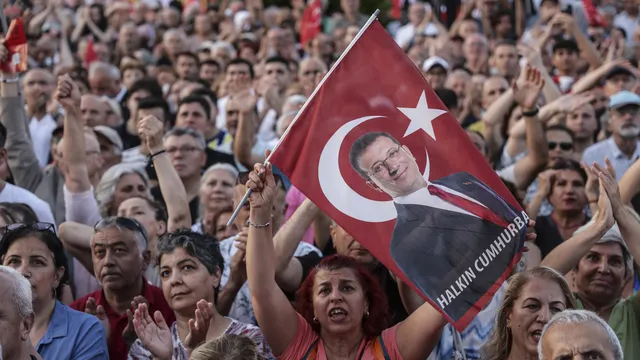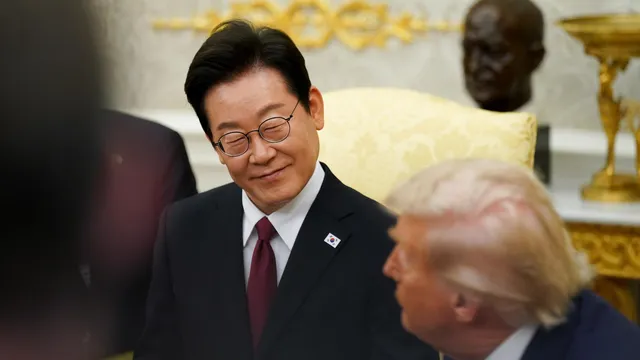The trial of Istanbul Mayor Ekrem Imamoglu, accused of falsifying his diploma and detained for “corruption” since March, will begin on September 11 in the metropolis.
Imamoglu, the main rival of President Recep Tayyip Erdogan in the upcoming presidential elections scheduled for 2028, was arrested on March 19 and imprisoned on March 25 in Silivri, west of Istanbul.
The mayor, whose mandate has been suspended, faces up to 8 years and 9 months in prison, as well as a ban on any political activity during the trial, AFP reported.
His arrest for “corruption” sparked protests not seen since 2013 and the large demonstrations in Gezi.
On the eve of his arrest, the governing board of Istanbul University revoked his university degree, preventing him from running for president of Turkey in the future.
According to the indictment prepared by the Istanbul prosecutor's office,
Imamoglu will be tried for “repeated falsification of official documents,” as he is suspected of having obtained his university degree through irregular means.
The prosecution is seeking a sentence of “two years and six months” to “eight years and nine months” in prison, the Anadolu Agency reported.
For 55-year-old Ekrem Imamoglu, the revocation of his management degree, obtained at Istanbul University after transferring from an institution located in the Turkish Republic of Northern Cyprus, is “illegal” as it is not within the competence of the university's governing board.
In addition to this “fraud” case, over 100 people working for or with the municipality of this metropolis were arrested along with the mayor as part of a corruption investigation.
Recently, new waves of arrests for “corruption” have hit municipalities run by the Republican People's Party (CHP), the largest opposition party in parliament, in Izmir, Adana, Antalya, and Adiyaman.
On July 7, France expressed its “deep concern” and stressed the importance of “respecting the rights of elected representatives.”
Turkey, in a statement issued by the Ministry of Foreign Affairs, condemned “interference in ongoing judicial proceedings,” stressing that it “guarantees fair and impartial judicial proceedings for all its citizens.” | BGNES

 Breaking news
Breaking news
 Europe
Europe
 Bulgaria
Bulgaria







